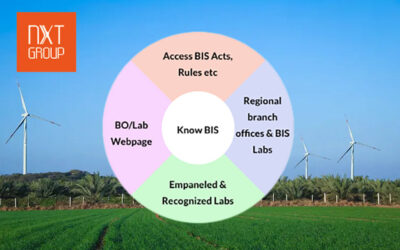For many European and US-based Brands and Manufacturers, the Indian market represents a vast opportunity yet remains challenging due to its complex regulatory landscape. Traditional export models like direct export, agents, or distributor arrangements often fall short...

‘Don’t do it the Dutch way. Respect local culture!’
To ensure a smooth transition and maximum productivity of an international company operating in foreign markets, one of the main factors for success is to try and adapt to and respect local culture, without losing the global corporate identity.
As an international manager, you have to understand your foreign team and bring in changes as you see fit to both cultures, to overcome hurdles and improve on efficiency, rather than changing things completely to the work ethic and work culture you were used to at home.
These are some of the most important lessons that NXT management trainee Floris Moest in Bangalore, India, wants to share.
‘I read a lot about India, and I arrived in its third most populous city with my Dutch mentality, attitude and behaviour. My mindset and work culture was still programmed as what I experienced at the Dutch Ministry of Defense.
When I approached my first weeks at the ‘Garden City’ office with that same mindset, it caused a culture clash, and made the beginning quite challenging. There was a fair bit of friction between me and my team, and after analysing why, I very soon realised that “The Dutch way” is not the only way of going about things.
I quickly learnt to look at the overall results and performance of employees rather than getting stuck on the nitty gritty of things as we normally do back home. In a country and city as diverse, rapidly growing and sometimes hectic like Bangalore, flexibility is key in every aspect of life here, and that translates in the working culture as well.
Building a good network of people and relations inside and outside the office, is another valuable feature to improve your steps to success. Moest says: ‘I always make it a point to stay in tune with everyone at my office. Even if it’s just a quick conversation checking in to see how they are really doing. These conversations have resulted in a much better understanding of each other, and therefore improved our working relationships.
Because of these bonds I cultivate, I notice that their appreciation of me and see that we work for each other’s and therefore the company’s joined success, instead of working against each other due to culture clashes.
As a management trainee I studied all facets of NXT’s infrastructure. So what did I do exactly?
- My main task is to manage the e-commerce and marketing team that is responsible for all marketing and e-commerce activities of NXT in India.
- My team also consists of the global Amazon and digital marketing support team that provides support for Amazon to NXT Europe, NXT Turkey and NXT USA.
- From our global support office in India, I maintain close relationships with our local Amazon and marketing specialists in Turkey, USA and the Netherlands.
- I am also ultimately responsible for offline sales of NXT’s FMCG portfolio to retailers, hospitality outlets and other channel partners in India.
- It is my responsibility to globally structure and optimize the software we use; by integrating software systems between countries and divisions and ensuring that all company data is on secure and accessible external servers.
- I play an active part in the sourcing and developing projects, where we source, develop and produce products as our own brand, to make available through our own infrastructure on the various e-commerce marketplaces around the world.
- Lastly, one of the roles that also has really gained my interest, is to assist the Key Account Managers in mapping out the organizational structures of some of our bigger partners, so that we can match our divisions and offer our services and collaborations in the best suitable way to the various departments and divisions of our partners.
In the six months I worked as a trainee in the NXT office in the Silicon Valley of India I gathered valuable input and have been open to a new way of thinking and doing things both professionally and personally. It really was on the go- job training.
I’m now well versed in how to effectively manage a team. Giving them more space and trust to show and perform their expertise rather than try to micromanage them, as I was used to do in the Netherlands, has led to some fruitful results.
I have much more comprehension too of what Key Account Management entails.
Identifying of what divisions a company is built up from, learning who has what position in the company and what his or her role is, has shown to be of key importance. Are they an influencer, decision maker or gatekeeper?
I have come to see Key Account Management as playing chess with a twist. Seeing what the playing field is on both NXT’s and our partner’s side, learning which pieces play which role and how that can be played to a successful outcome, leads to a game of chess where both parties can win. This is a position and challenge that interests me a lot.

